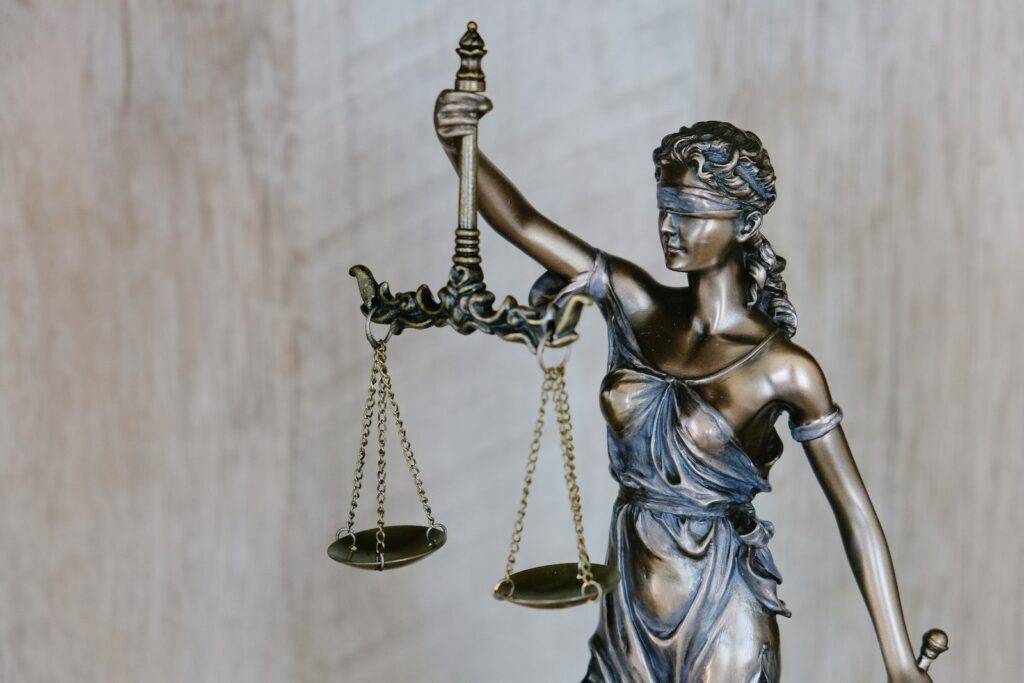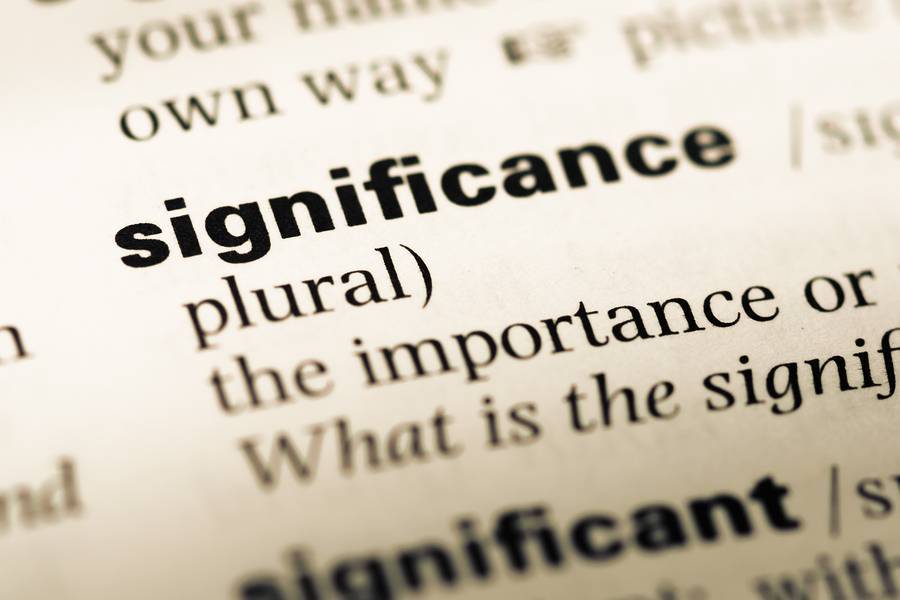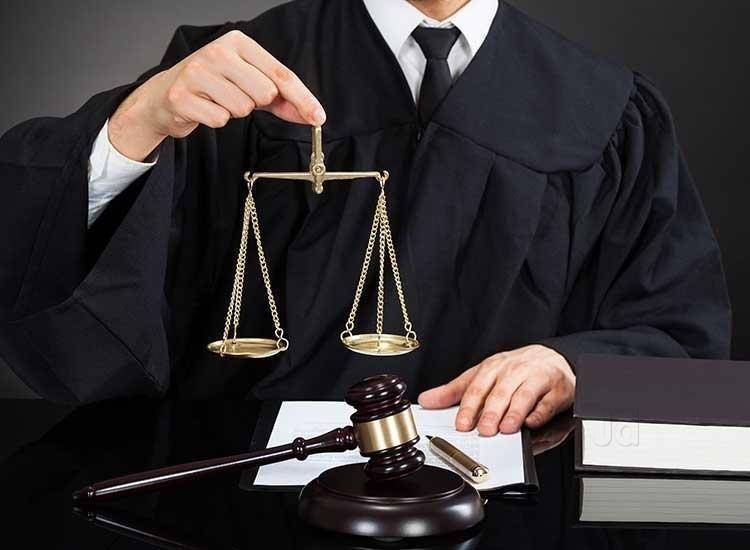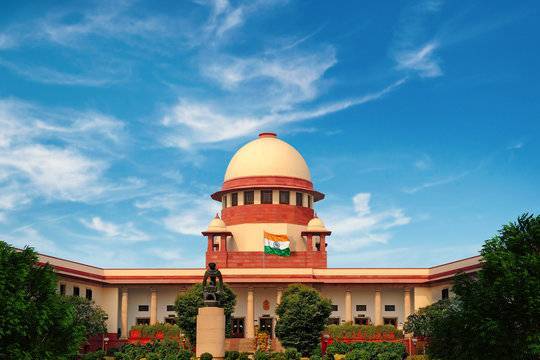
GAG LAWYERS -
GROVER & GROVER ADVOCATES

GAG LAWYERS -
GROVER & GROVER ADVOCATES

Criminal Lawyer, Criminal law is a body of regulation that defines and regulates the punishments for criminal offences. It is the body of law that deals with the prevention, studies, and prosecution of crimes. The major provisions of criminal law in India are contained in the Indian Penal Code (IPC), the Code of Criminal Procedure (CrPC), and the Evidence Act.
The IPC is the number one deliver of criminal law in India and provides a complete list of criminal offences. The CrPC outlines the strategies for the research and trial of criminal times, at the equal time as the Evidence Act units out the rules of proof that may be carried out in criminal trials. It is important to recognize how crook law works so that you can shield oneself from capacity prison problems. This will offer an outline of crook regulation, at the side of its most important.
provisions and its software in several conditions. We can even talk about commonplace defences applied in crook instances and the possible effects of a conviction. By knowledge of the key additives of criminal law, humans can better guard themselves in competition to functionality crook issues.
Criminal law is a branch of regulation that offers crimes and their punishments. In India, it is ruled by way of the Indian Penal Code (IPC), which turned into enacted in 1860. The IPC defines diverse types of crimes and prescribes punishments for them. It additionally lays down the process for researching, trialing and punishing criminals.

The important provisions of crook regulation in India embody offences closer to public order, offences in opposition to property, offences in opposition to the nation, offences referring to marriage and divorce, offences regarding faith and caste, offences related to pills and intoxicants, and so forth. These provisions are designed to shield people from damage due to criminal sports. They additionally feature a deterrent for functionality offenders who can be tempted to devote crimes due to a lack of fear or apprehend for the regulation.
The Indian Penal Code, 1860, is the statutory regulation in India governing criminal regulation. It became enacted on September 23, 1860, with the aid of the British Government and came into strain in 1862. The Code has been amended commonly, with new sections and codes entering strain every so often. The last large trade became in 2013, while a modern section called the Sexual Harassment of Women at Workplace (Prevention, Prohibition, and Redressal) Act 2013 got here into pressure.
This code consists of ten components, which may be:
Part I: Introductory; Part II: Offences in the route of Public Order; Part III: Places of Public Amusement, Amusements Part IV: Combination of Places; Part V: Persons who, with the resource of the usage of the use of their actions or phrases, initiate or incite others to devote offences in the direction of public order Part VI: Persons who incite others to apply violence in competition to precise mother and father or who participate in violent assemblies Part VII: Persons Who Incite Others to Use Violence Against Other Persons or Who Take Part in Violent Assemblies Part VIII: Offences Against Property, Theft, and Housebreaking; Part IX: Place of a Crime and the Circumstances in Which the Crime is Committed; Part X: Penalty for Offences

Criminal regulation is a hard and fast of legal guidelines and rules which is probably designed to guard the public from criminal hobby. It is a branch of law that is focused on punishing and deterring folks that devote criminal acts. The cause and importance of criminal regulation are to guard the general public from volatile behaviour, to maintain order, and to make sure justice and fairness.
Criminal law is important for society as it permits to keep the rule of thumb of thumb of law, that is important for the functioning of any society. Without criminal felony pointers, it might be difficult to put into effect any form of civil justice. It permits to create a safe and steady surroundings for residents and to guard their rights.
Civil Lawyer Delhi_Grover & Grover Advocates
Criminal law is likewise critical for organising a feel of consider and admire inside the community. When residents realize that there are laws in location to protect them from criminal interest, they are much more likely to sense snug of their network. This increases their sense of protection and nicely-being, as well as their consider in the guideline of law.
Criminal law also helps to ensure that people who dedicate crimes are held liable for their moves. It gives a machine of punishment that is proportional to the severity of the crime dedicated. This allows deter ability criminals from committing destiny crimes, as they understand there are outcomes for his or her movements.
Criminal regulation is also essential for making sure that legal guidelines are enforced pretty and similarly. It helps to guard the rights of all residents, irrespective of their history or social reputation. Furthermore, it helps to ensure that laws are applied continuously across the usa so that all people are dealt with equally below the regulation.
Finally, criminal law enables to make sure justice is served. It is designed to make sure that harmless human beings aren't convicted of crimes they did no longer dedicate and that folks who are guilty of a crime are held accountable for their actions. This enables to create a feel of fairness and justice in the community. In conclusion, the criminal regulation is an critical part of any society. It enables to protect the general public from criminal hobby, hold order, and make sure justice and equity. Without criminal regulation, society could be tons less safe and secure, and justice could now not be served.

Criminal regulation in India is ruled with the aid of the Code of Criminal Procedure (CrPC). This code defines various varieties of crook instances and their provisions. These criminal cases may be extensively classified into categories: cognizable offences and non-cognizable offences. Cognizable offences are those which are more extreme in nature and require instantaneous movement by means of the police. Whereas non-cognizable offences are much less severe in nature and do now not require on the spot action by using the police. The Indian Penal Code (IPC) lays down the punishment for various offences devoted beneath Indian law. It also provides for various defences that can be utilized by accused people to get away conviction or lessen their sentence. The Indian Evidence Act, 1872, offers for rules of proof that need to be observed during a criminal trial.
The CrPC also defines tactics that must be observed at the same time as accomplishing a criminal trial, consisting of research, filing price sheets, summoning witnesses, etc., as well as different topics related to criminal law, together with
Civil Lawyer Delhi_Grover & Grover Advocates
Theft: Theft is defined in Section 378 of the Indian Penal Code (IPC). It states that whoever, intending to dishonestly take any movable property out of the possession of any person without that man or woman's consent, movements that property so as to make this type of taking, is stated to commit robbery. The punishment for theft is imprisonment for a time period which could enlarge to 3 years, a fine, or both.
Burglary: Burglary is described in Section 441 of the IPC. It states that whoever enters into or upon assets inside the ownership of some other with intent to dedicate an offence or to intimidate, insult, or annoy any man or woman in possession of such assets is stated to dedicate burglary. The punishment for burglary is imprisonment for a term that could enlarge to seven years and a first-class.
Kidnapping: Kidnapping is defined in Section 363 of the IPC. It states that whoever takes or entices away any character with the purpose of confining him is stated to kidnap that character. The punishment for kidnapping is imprisonment for a time period which could make bigger to seven years and a excellent.

In India, criminal legal professionals play a crucial position in crook law subjects. They are the ones who constitute the accused in court docket and offer prison recommendation to them. Criminal attorneys also are answerable for supplying prison advice to sufferers of crime. Criminal attorneys work intently with police, prosecutors, and other employees in the criminal justice system to make sure that justice is served.
A crook legal professional in India can provide assistance in all degrees of criminal proceedings, from submitting a criticism to the very last judgement. Criminal legal professionals are also answerable for learning applicable laws and regulations, making ready prison documents, representing their clients in court docket hearings, and making sure that their customers get a truthful trial. In addition, criminal legal professionals might also advise their customers on how excellent to address any appeals or other post-trial proceedings.
Criminal legal professionals play a key function in crook regulation subjects in India. Criminal lawyers provide criminal counsel to their customers and constitute them in court. Criminal legal professionals make certain that their clients acquire honest and simply treatment according with the laws of the country.
A crook attorney advises and publications the accused on their rights, the proof against them, and the legal lawsuits taking vicinity against them. They also offer prison advice on the way to prepare for the case, collect proof, and prepare for trial. Moreover, attorneys represent their clients in court and make certain that the accused receives a honest trial. They also paintings to guard their clients from persecution and abuse.
A criminal attorney also attempts to reduce the severity of the punishment and make sure that the accused isn't falsely accused. In addition, attorneys provide criminal recommendation to the prosecution and defence groups to help them prepare for their respective instances. A criminal lawyer additionally allows the court recognize the felony problems concerned inside the case and make sure that justice is served. Overall, attorneys play a crucial position in criminal law matters in India, imparting felony counsel and illustration to their customers whilst defensive them from abuse and making sure they receive a honest trial.

Filing a crook case in India can be an intimidating manner. It is important to apprehend the documents required to report a case associated with criminal regulation subjects and the various steps involved in submitting any such case. In this newsletter, we are able to discuss the files wished for submitting a criminal case in India and the numerous steps that want to be accompanied. We may even offer an outline of the sorts of cases that can be filed below criminal law and description the tactics for submitting such cases. By know-how those files, you will be capable of ensure that your case is filed correctly and with all relevant records protected.
Complaint or First Information Report (F.I.R.): This document is submitted to the police station when a crime is committed, and it is the polices responsibility to investigate the crime and file the charge sheet in court.
Charge Sheet: This document is filed by the police in court when the investigation is completed. It contains a detailed description of the crime and the accused.
Arrest Warrant: This document is issued by the court when the police request the arrest of an accused.
Search and Seizure Warrant: This document is issued by the court when the police request the search and seizure of any evidence related to the case.
Bail Application: This document is filed by the accused or his or her lawyer in court when the accused seeks to be released on bail.
Judgment: This document is issued by the court when a decision is made in the case.
Appeal: This document is filed by the accused or the victim seeking to challenge the courts decision.
Evidence: This includes any material evidence that is collected by the police during the investigation and presented in court. This includes witness statements, photographs, videos, documents, etc.

Grover & Grover, Advocates, and Solicitors can offer a variety of services to individuals going through crook charges, ranging from recommendation on the best route of action to representing them in court lawsuits.
When a customer faces criminal costs, step one is to discuss with a criminal regulation lawyer to decide the exceptional course of action for his or her case. Grover & Grover can propose at the capacity results of a criminal case and first-rate strategies for protecting the clients rights in the courtroom.
In addition to presenting recommendations, Grover & Grover can also represent clients in court docket, consisting of in the course of pre-trial hearings and the real trial. During this time, the corporation can offer advice and steerage to assist clients in making informed choices, even as additionally ensuring their rights are blanketed all through the courtroom lawsuits.
Grover & Grover can also provide representation in appeals and post-trial matters along with parole hearings and probation hearings. The company also can assist in negotiating plea deals, which can assist decrease the sentencing and different penalties related to a crook conviction.
Overall, Grover & Grover are experienced criminal regulation legal professionals who can offer a range of offerings to individuals facing crook costs.

Criminal law is an vital component of the Indian legal gadget, and there have been severa cases associated with criminal regulation subjects inside the Supreme Court and High Courts of India. These instances have dealt with a whole lot of problems, along with homicide, rape, assault, robbery, and different offences underneath the Indian Penal Code. This article will talk a few famous crook law cases in India which have been heard by means of the Supreme Court and High Courts. It may even offer an overview of the prison ideas carried out in these instances and their implications for criminal regulation proceedings in India.
State of Karnataka vs. Krishnappa: This case become heard via the Supreme Court and handled criminal topics associated with the Indian Penal Code. The courtroom held that an accused who fails to provide an alibi in a criminal case can be convicted even supposing the prosecution proof isn't conclusive.
State of Uttar Pradesh vs. Ram Chandra: This case was heard via the Supreme Court and treated criminal subjects associated with the Indian Penal Code. The court held that someone may be convicted of an offence even supposing he became not gift at the scene of the crime.
Shiv Kumar Yadav vs. State of Uttar Pradesh: This case was heard through the High Court and handled criminal matters associated with the Indian Penal Code. The court docket held that the accused have to take delivery of the possibility to explain the occasions leading to his arrest as well as different subjects associated with the case.
State of Maharashtra vs. Dattatraya: This case turned into heard with the aid of the Supreme Court and handled crook topics related to the Indian Penal Code. The court docket held that the accused have to be given an inexpensive possibility to explain the occasions main to his arrest in addition to different subjects related to the case.
Ram Narayan vs. State of Rajasthan: This case was heard by way of the High Court and handled crook subjects related to the Indian Penal Code. The court held that an accused must receive an inexpensive possibility to provide an explanation for the situations leading to his arrest as well as different matters associated with the case.